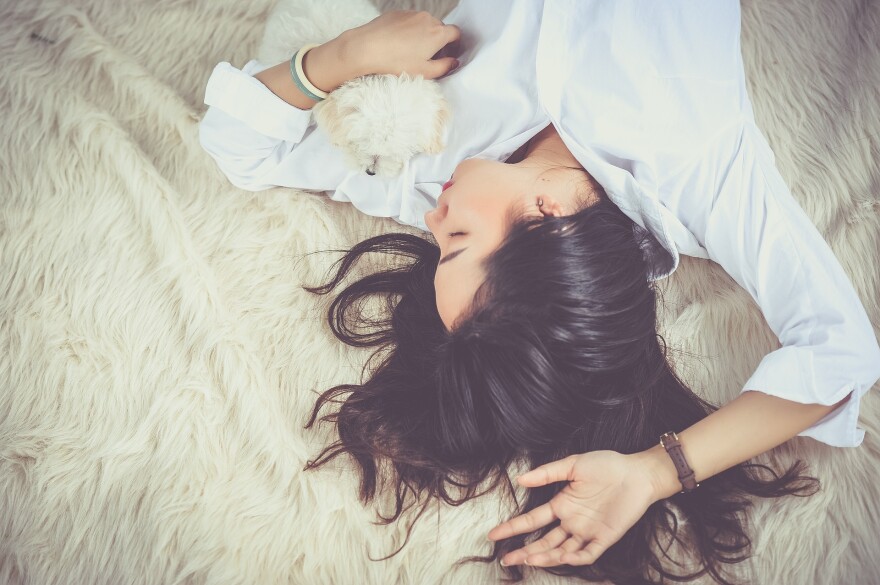Kailey Foster: You may have noticed you lost an hour of sleep last week because of daylight savings. Joining me today is Emma Campbell, a health and wellness intern with USU extension to talk about how daylight savings can affect our sleep.
Besides losing an hour of sleep we lost, how does daylight savings times affect our sleep schedules?
Emma Campbell: Yeah, so obviously, we lose that one hour. But another thing that happens with daylight savings is when we switch between daylight savings and standard time, we get more morning darkness and evening light.
That can delay our sleep-wake cycle. When you wake up in the morning feeling tired, it's because it's still dark outside. You're more alert in the evening because it's still light outside.
KF: So, what are some tips you have about getting better sleep during this time?
EC: Yeah, so I have five tips that I'd like to share. And I should probably follow them better myself.
1. Have a consistent sleep schedule. So, setting a bedtime and a wake-up time that you stick to consistently is important to making sure you get good sleep. You should also make sure that the sleep schedule you create for yourself gives you seven hours of sleep at least. And then something to help with next time daylight savings since we just went through it is to start waking up 15 to 20 minutes earlier and changing your sleep schedule slightly right before daylight savings.
2. Stay off your devices before bed. This can be hard. It might be tempting to scroll through your social media on your phone or your iPad right before you go to bed but, that can disturb your melatonin function in your body.
3. Have a bedtime routine you follow. Just something that helps you relax before going to bed is super important. This can consist of anything that helps you wind down from the day. Some examples are writing in a journal, practicing meditation, or having a skincare routine each night.
4. Stay away from caffeine and alcohol before bed. Contrary to popular belief, alcohol doesn't help people sleep well. It might help you fall asleep, but it doesn't help you sleep well. So your quality of sleep is worse when you drink alcohol before bed. And then making sure that you're not drinking coffee or caffeinated tea before bed is really important. So you can drink an herbal tea if that helps you fall asleep.
5. Exercise during the day. So how we treat ourselves throughout the day plays a significant role in how we sleep at night. So exercising during the day helps us lower stress and have a better mood. And that puts us in a better place for a healthier sleep at night.
KF: Why is a good night's sleep important?
EC: Yeah, so first, it just makes us feel better, right? If you get a good night's sleep, you wake up feeling great. That's one reason we want to do it. But a good night's sleep helps us both with mental health and physical health. Oftentimes we forget and are focused on too much on one or another. Thinking that if we exercise, then our physical health will be great. But, you also have to make sure that you're getting enough sleep. Sleep is also important because when we go to bed at night, it helps our body repair and be fit for the next day.


